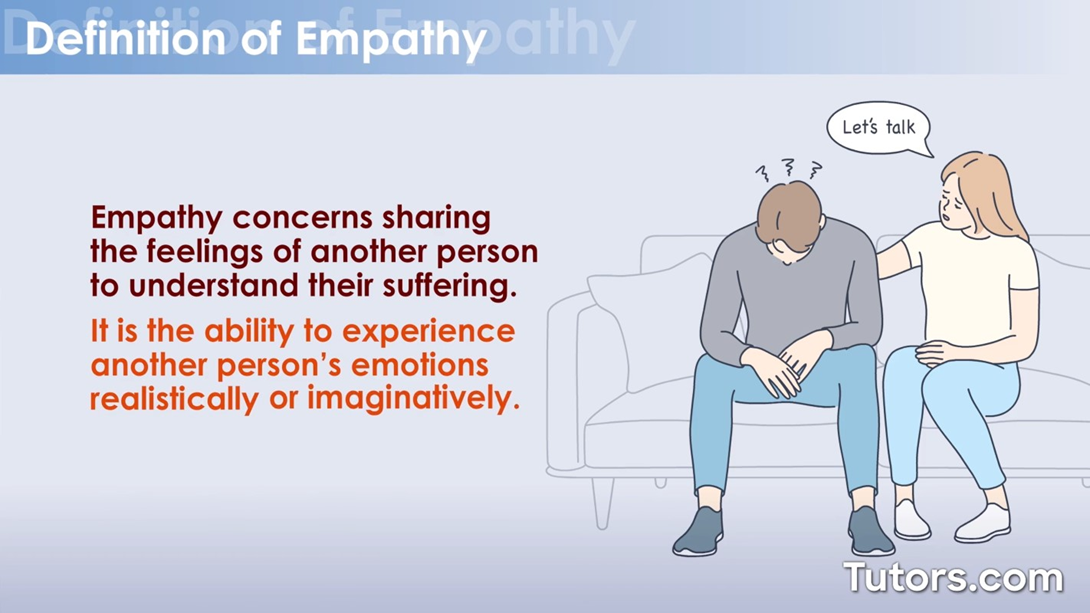태뽕이의 자기계발 & 경력개발
※ Empathy vs. Sympathy — Definitions and Examples. Part 2 본문
※ Empathy vs. Sympathy — Definitions and Examples
■ Difference between sympathy and empathy
*Sympathy is feeling compassion or pity for someone, whereas empathy means experiencing someone else’s feelings.
*Sympathy and empathy are often used interchangeably, but the terms are not synonymous. Both are nouns involving emotions and feelings toward a person or thing, but the type of emotional connection they suggest differs.
*Sympathy primarily means feeling sorry for someone else’s misfortune or suffering.
*Empathy is the ability to understand and feel the emotions of another person.

.
.
.
.
.
■ Definition of sympathy
*Sympathy consists of the prefix “sym-,” meaning “together” or “with,” and the base word “pathos,” which roughly means “feelings.” In its simplest form, sympathy means “with feeling.”
*Overall, sympathy has two primary uses, both of which deal with being “in sync:”
Use 1: Feeling pity or sorrow toward someone else’s situation.
He expressed sympathy for those affected by the hurricane.
Use 2: Show support, understand, or agree with
His sympathies are clearly with the workers looking for better pay.

*Sympathy can also function as an adjective (sympathetic) and a verb (sympathize).
Being sympathetic means feeling or showing sympathy.
e.g.)
The guidance counselor was always willing to lend a sympathetic ear.
To sympathize means to experience sympathy.
e.g.)
He started to sympathize with her position on the subject.
.
.
.
.
.
■ Definition of empathy
*Empathy concerns sharing the feelings of another person to understand their suffering. It is the ability to experience another person’s emotions realistically or imaginatively. Having gone through a similar situation as the person does create empathy; however, it is not necessary to have shared the exact same experience.
e.g.)
Having adopted a puppy from a shelter, I have great empathy for dogs who need a home.

*Empathy is an individual’s ability to walk in another person’s shoes and feel what they are feeling. This ability typically occurs by direct similarity or commonality.
*Direct similarity occurs when a person directly relates to someone’s personal experience and remember how they felt at the time.
e.g.)
I have a lot of empathy for you because I’ve also struggled with losing a loved one.
*Commonality, in this case, means the more someone has in common with another person, the more likely they are to empathize with them and feel what they are feeling.
e.g.)
We both didn’t make the team, so we can provide each other with some support and empathy.

*Empathy can also function as an adjective (empathetic) and a verb (empathize).
Being empathetic (adjective) means feeling or showing empathy.
e.g.)
The similarities among the support group members allowed for empathetic conversations.
*To empathize (verb) means to experience empathy.
e.g.)
Silvia’s mother empathized with her daughter’s struggle to put her newborn to bed.
.
.
.
.
.
■ Empathy vs. sympathy examples
The following sentences include examples of empathy and sympathy as nouns, adjectives, and verbs:
*Sympathy (Noun)
My deepest sympathy goes out to you and your family.
A wave of sympathy washed over the country.
The doctor shows sympathy toward all his patients.
*Sympathetic (Adjective)
He was hoping his boss would be more sympathetic to his reason for being late.
I’d be more sympathetic if he weren’t so selfish.
The company is sympathetic to its employees who cannot afford daycare.
*Sympathize (Verb)
I sympathize with your condition and will do whatever I can to help.
The film suggests that most Americans sympathize with injured veterans.
Many people sympathize with animals in zoos.
*Empathy (Noun)
Because she immigrated years ago, she has empathy for those trying to move to the country.
Spending the summer at my dad’s job helped me gain empathy for what he does.
She had great empathy for the animals after working at the reserve.
*Empathetic (Adjective)
Successful authors create empathetic characters who connect directly to their audience.
Empathetic therapists often use their own experiences to help their patients.
He couldn’t be empathetic because he never experienced the same challenges.
*Empathize (Verb)
It was hard for her to empathize because she had never been through something like that.
Growing up in an impoverished family allowed her to empathize with her clients at the unemployment office.
I should trust that my parents can empathize with what I’m going through because they were once teenagers too.
[별첨]
'영어 > 영어 용법·표현' 카테고리의 다른 글
| Prepositions after "obsessed" (1) | 2024.04.05 |
|---|---|
| [어순] go over it & go it over (1) | 2024.04.05 |
| • empathy VS • sympathy Part. 1 (3) | 2024.03.06 |
| ※ firstly / first of all / at first (1) | 2024.02.29 |
| 유의어 ¦ ① mark ② stain ③ streak ④ speck ⑤ blot ⑥ smear ⑦ spot ⑧ fingerprint (4) | 2024.02.24 |

